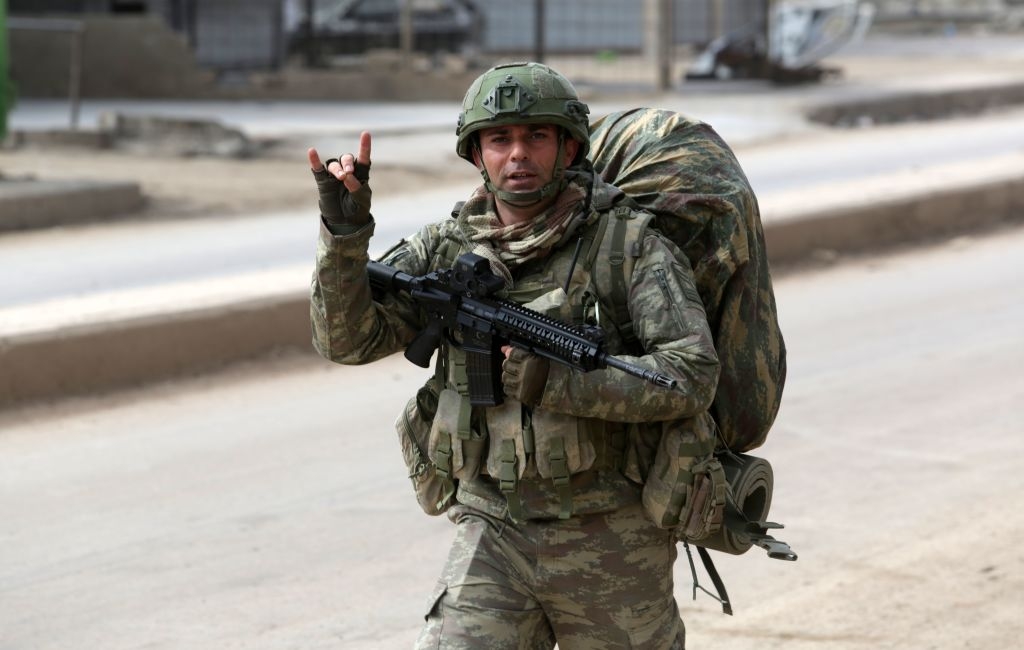Who Are the Extremist 'Grey Wolves'?
by Uzay Bulut • November 29, 2021 at 4:00 am
In reality, the Grey Wolves movement very much does exist. It has a long history of bloodbaths across Turkey and is now a growing movement across Europe as well as the South Caucasus.
This ideology [Turanism, or the Greater Turkish homeland] believes in the superiority of a supposed Turkish race and wants to unite all Turks under one country, "Turan", from Europe to the Pacific. These ideas have greatly influenced the Grey Wolves organization and its actions.
The "Turan" ideal is still alive and well in Turkish politics. Prior to a meeting at the presidential palace on November 17, Turkey's President Recep Tayyip Erdogan and the head of the Nationalist Movement Party (MHP), Devlet Bahçeli, posed with a map of the so-called "Turkish world", or the Turan, before cameras.
"The Grey Wolves have a long history of terrorism towards ethnic religious minorities, but their skillset has evolved. They are stronger than in the early 2000's. The MHP's political alliance with Turkey's ruling AKP three years ago legitimized them, giving the Grey Wolves a new sense of unity. They are militarized, they are efficient, and they are on the move globally. Their mission is Pan-Turkic Islamism, and any ethnic Christian who exists within their targeted sphere is at risk." — International Christian Concern.
It is time for civilized nations to look more closely at the violent attacks and threats by the Grey Wolves against minorities and dissident intellectuals in and outside of Turkey.

Last month, the US Congress passed an amendment to the Fiscal Year 2022 National Defense Authorization Act (NDAA) that could affect the status of the far-right, extremist group that operates both inside and outside Turkey: the Grey Wolves.
The amendment, introduced by Congresswoman Dina Titus (D-NV), requires that the State Department send a report to Congress on the activities of the Grey Wolves against the United States and its allies -- including an assessment of whether the Grey Wolves meets the criteria to be designated as a foreign terrorist organization.
The Grey Wolves (Bozkurtlar) is the informal name of a Turkish nationalist organization called Idealist Hearths (Ülkü Ocakları). As a political movement, it is referred to as the Idealist Movement (Ülkücü Hareket) and is responsible for many acts of violence, including the 1981 attempted assassination of Pope John Paul II.

No comments:
Post a Comment